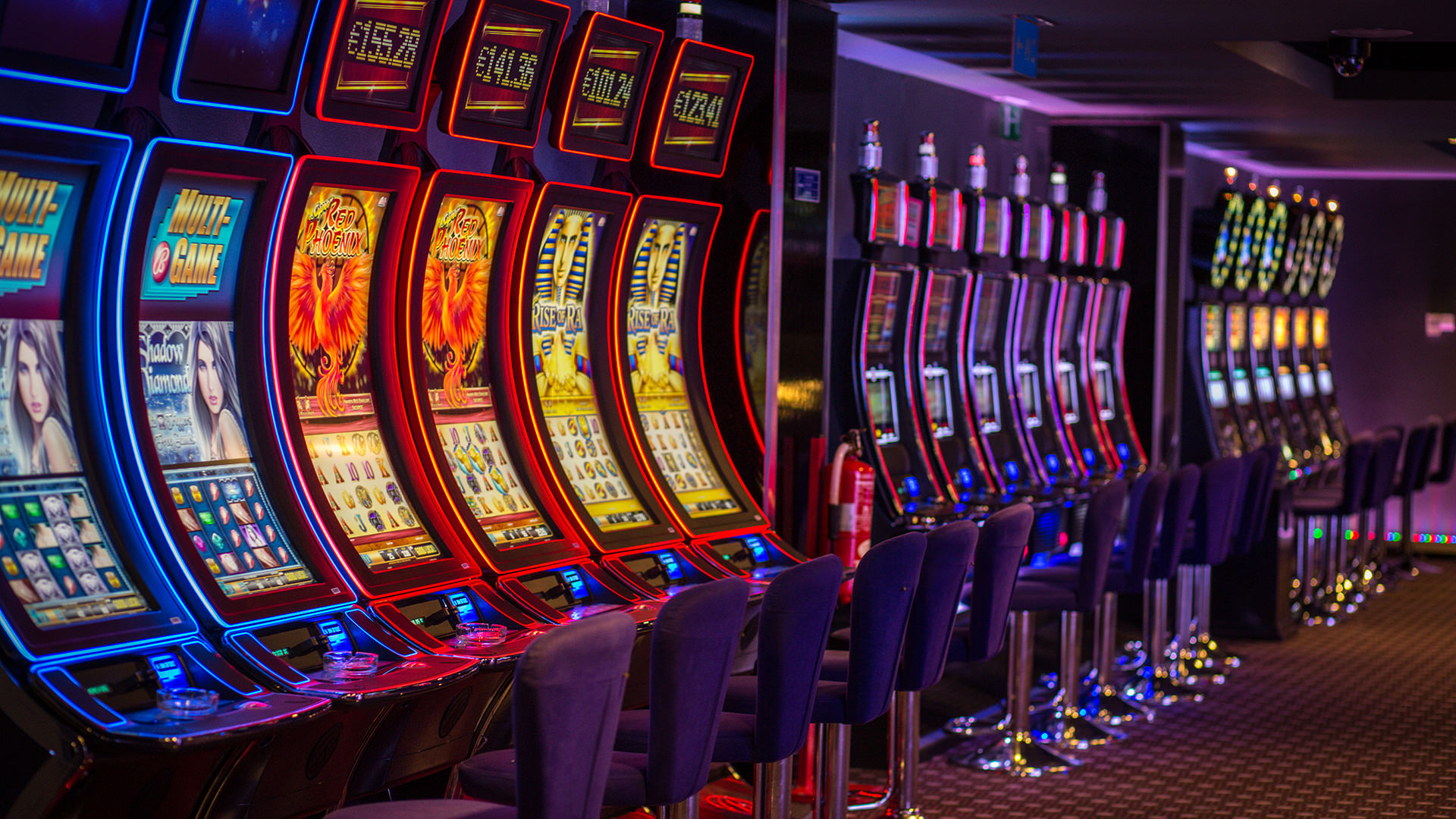When we think of casino activities, the first images that often come to mind are those of spinning wheel devices, poker chips clinking on felt surfaces, and dice flying across a betting area. While numerous view these activities as simple pastimes fueled by luck, a more profound exploration reveals a fascinating blend of strategy, expertise, and social engagement that elevates them well beyond simple luck. Whether you are a seasoned player or a curious newcomer, grasping the nuances of these games can greatly enhance your enjoyment and understanding.

Casino games have evolved over centuries, with different cultures contributing to their rich backgrounds and different forms. 99win From the intricate strategies of 21 to the bluffing tactics in card games, players engage in a contest of intellect as much as a gamble on odds. This exciting interplay between chance and skill creates a exciting atmosphere that draws millions to casinos worldwide. As we explore the world of card games, we will uncover the methods that can tilt the odds in your favor and the community aspects that make these activities a favored choice for entertainment and engagement.
A Strategy Behind Casino Gaming
Casino gaming frequently combine a mix of ability and luck, making them fascinating for participants who like a challenge. Each game has its unique set of rules and tactics that can affect the results. For example, in titles like 21, players are required to use tactics like counting cards and grasping the probabilities to make informed decisions. This expertise can significantly improve their victory potential, distinguishing experienced players from novices who may depend entirely on luck.
Conversely, titles such as roulette may appear to be entirely based on chance, but tactical thinking can also come into the equation. Participants can choose between different wagering tactics, such as the Martingale system, in which they raise the bets after losses. This method can create a more methodical way to the game. Grasping the odds of specific bets can also assist players make smarter decisions on the table, demonstrating that even in games of luck, strategy can enhance the enjoyment.
Furthermore, poker stands out as a game that heavily focuses on strategy. In contrast to most casino games, poker merges skill, mental acuity, and luck. Players must not only concentrate on the cards they are dealt but also take into account their opponents actions and betting patterns. Bắn cá 99win Mastering concepts like position, the odds of the pot, and reading bluffs is crucial for success. This complexity of strategy in poker often leads to a more immersive encounter for players, where the decisions and abilities significantly affect the match’s outcome.
Grasping Probability and Ratios
In the realm of gambling activities, likelihood and ratios have a vital role in determining a player’s possible results. Every activity has its own collection of rules that dictate how the chance of succeeding or losing is calculated. For instance, in games like blackjack, participants have a chance to affect their odds through tactics, whereas in matches like the wheel, the outcomes are purely dictated by luck. Grasping how these chances are calculated can greatly affect how a gambler deals with the game.
Odds are typically presented in two forms: fractional and decimal. Fractional ratios represent the ratio of the amount gained to the sum staked, whereas decimal odds show the overall payout for a successful bet, including the stake. For instance, if a game has ratios of 5 to 1, this means that for every one dollar bet, a player could gain five dollars if they win. Knowing how to interpret these ratios allows gamblers to evaluate their potential winnings and formulate more informed decisions during gameplay.
Players should also be conscious of the casino advantage, which is the casino’s built-in advantage over the gamblers. Each game has a different house edge, and grasping this idea is essential for controlling one’s expectations and budget. Games with a lower house edge, such as blackjack and chemin de fer, typically offer superior odds for gamblers compared to activities like slot machines and lottery. By acknowledging the connection between chance, odds, and the casino advantage, players can enhance their gaming engagement and strategize more efficiently.
The Social Aspect of Table Gaming
Casino games at gaming establishments are often seen as a hub of social interaction, bringing participants together in a collective experience that goes far past the mere act of gambling. The atmosphere at a blackjack table can be electric, with gamblers engaging not only with the game itself but also with one another. Laughter, cheers, and, occasionally, friendly banter create connections that enhance the overall experience of the gaming experience. This communal aspect can turn a alone endeavor into a dynamic social event, making table games particularly appealing.
One of the intriguing elements of gaming at tables is the way it fosters friendship among players. Whether it’s collaborating to beat the dealer at a dice table or sharing stories between hands in a card game, the environment encourages communication. Players often share tips or tactics, creating a sense of community that boosts the fun. This interpersonal atmosphere can make new gamblers feel welcomed and less intimidated by the competitive nature of casino games. As the game continues, friendships may form, leading to a sense of connection that keeps participants coming back to the table.
Moreover, the social aspect of gaming at tables extends beyond just the players. Dealers play a crucial role in facilitating interaction and maintaining the flow of the game. Their ability to engage players with warm dialogue and their expertise in running the table can create an inviting atmosphere. This relationship between participants and dealers adds another layer of enjoyment, where gamblers feel bonded not only to each other but also to the staff. Such interactions are often what make the experience memorable, as players leave with tales to tell and connections made, reinforcing the notion that gaming at tables are truly about more than just chance.